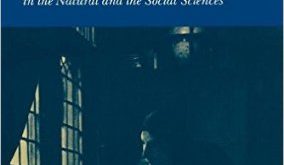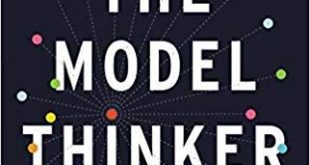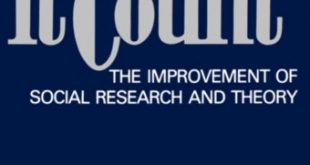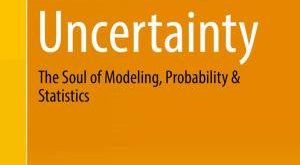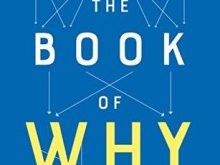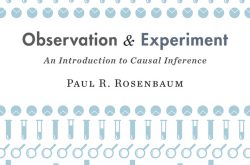Why Bayesianism has not resolved a single fundamental scientific dispute Bayesian reasoning works, undeniably, where we know (or are ready to assume) that the process studied fits certain special though abstract causal structures, often called ‘statistical models’ … However, when we choose among hypotheses in important scientific controversies, we usually lack such prior knowledge of causal structures, or it is irrelevant to the choice. As a consequence,...
Read More »The essence of scientific reasoning
The essence of scientific reasoning In deductive reasoning all knowledge obtainable is already latent in the postulates. Rigour is needed to prevent the successive inferences growing less and less accurate as we proceed. The conclusions are never more accurate than the data. In inductive reasoning we are performing part of the process by which new knowledge is created. The conclusions normally grow more and more accurate as more data are included. It should...
Read More »Inference to the best explanation
Inference to the best explanation [embedded content] In a time when scientific relativism is expanding, it is important to keep up the claim for not reducing science to a pure discursive level. We have to maintain the Enlightenment tradition in which the main task of science is studying the structure of reality. Science is made possible by the fact that there are structures that are durable and independent of our knowledge or beliefs about them. There...
Read More »Why all models are wrong
Why all models are wrong Models share three common characteristics: First, they simplify, stripping away unnecessary details, abstracting from reality, or creating anew from whole cloth. Second, they formalize, making precise definitions. Models use mathematics, not words … Models create structures within which we can think logically … But the logic comes at a cost, which leads to their third characteristic: all models are wrong … Models are wrong because...
Read More »Ten theory of science books that should be on every economist’s reading list
Ten theory of science books that should be on every economist’s reading list • Archer, Margaret (1995). Realist social theory: the morphogenetic approach. Cambridge: Cambridge University Press • Bhaskar, Roy (1978). A realist theory of science. Hassocks: Harvester • Cartwright, Nancy (2007). Hunting causes and using them. Cambridge: Cambridge University Press • Chalmers, Alan (2013). What is this thing called science?. 4th. ed. Buckingham: Open...
Read More »Superficial ‘precision’
One problem among social researchers is the tendency to view specificity and concreteness as equal to Science and Rigorous Thinking … But this ‘precision’ is often achieved only by analyzing surface causes because some of them are readily measured and operationalized. This is hardly sufficient reason for turning away from broad generalizations and causal principles. Advertisements
Read More »Truth and probability
Truth exists, and so does uncertainty. Uncertainty acknowledges the existence of an underlying truth: you cannot be uncertain of nothing: nothing is the complete absence of anything. You are uncertain of something, and if there is some thing, there must be truth. At the very least, it is that this thing exists. Probability, which is the science of uncertainty, therefore aims at truth. Probability presupposes truth; it is a measure or characterization of truth. Probability is...
Read More »Richard Feynman om mathematics
Richard Feynman om mathematics In a comment on one of yours truly’s posts last week, Jorge Buzaglo wrote this truly interesting comment: Nobel prize winner Richard Feynman on the use of mathematics: “Mathematicians, or people who have very mathematical minds, are often led astray when “studying” economics because they lose sight of the economics. They say: ‘Look, these equations … are all there is to economics; it is admitted by the economists that there is...
Read More »Bayesian networks and causal diagrams
Bayesian networks and causal diagrams Whereas a Bayesian network can only tell us how likely one event is, given that we observed another, causal diagrams can answer interventional and counterfactual questions. For example, the causal fork A <– B –> C tells us in no uncertain terms that wiggling A would have no effect on C, no matter how intense the wiggle. On the other hand, a Bayesian network is not equipped to handle a ‘wiggle,’ or to tell the...
Read More »Is economic consensus a good thing?
Is economic consensus a good thing? No, it is not — and here’s one strong reason why: The mere existence of consensus is not a useful guide. We should ask; Does a consensus have its origins and its ground in a rational and comprehensive appraisal of substantial evidence? Has the available evidence been open to vigorous challenge, and has it met each challenge? … A consensus that lacks these origins is of little consequence precisely because it lacks these...
Read More » Heterodox
Heterodox

